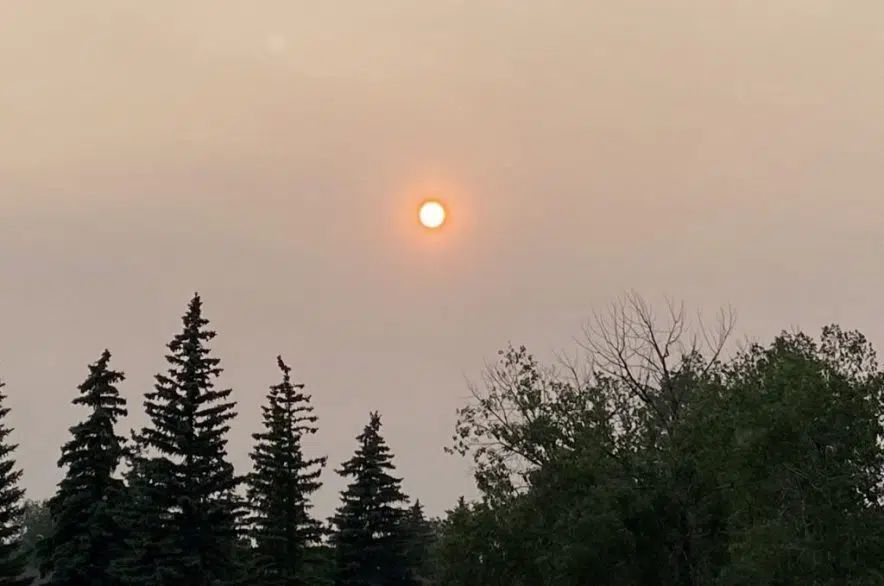As wildfires continue to blaze in Saskatchewan, lung health is becoming a major concern.
Dr. Simon Kapaj is a medical health officer with the Saskatchewan Health Authority who has been closely monitoring the situation.
“We are looking at the individuals who already have underlying health conditions, like individuals with asthma or heart issues,” said Kapaj.
“We’re making sure that they put a lot of attention into prevention and making sure that they reduce exposure to wildfire smoke and also heat because we’re having a dry, hot summer.”
Kapaj says people with pre-existing health conditions and weakened immune systems will be the most affected by the smoke.
He explained that people with lung conditions, heart conditions or diabetes or are going through cancer treatments will struggle with smoke inhalation. Specific groups of people are also more affected than others.
“We have distributed information to special advisory groups like children, pregnant women and seniors,” said Kapaj. “These are some of the groups that you’d see more of an impact of the exposure of smoke in the outdoor environment.”
The smoke isn’t just having serious repercussions on people’s physical health. People’s time outdoors being limited has had severe impacts on their mental health as well.
Troy Davies, the director of public affairs for Medavie Health Services West, said that organization has been receiving many calls from people who have been feeling anxious about the ever-changing air quality situation.
“At the end of the day, I think people are getting through it but it’s not how it used to be and people need to lean on each other,” said Davies.
He says people feel stressed about the possibility of being stuck indoors again now that they’ve finally escaped that lifestyle after the COVID-19 pandemic.
He explained that children don’t want to stop their outdoor sports, but it all depends on how bad the air quality statements are that day.
“With Saskatchewan, we basically have three months to be outside before we’re locked indoors for winter hibernation,” said Davies. “It’s tough for people because they don’t want to be locked in their house.”
The Saskatchewan Health Authority warns everyone, but specifically people with pre-existing health conditions, to monitor the air quality index daily before planning any outdoor activities.
The SHA advises people to monitor for certain symptoms after being subjected to smoke for a prolonged amount of time. Those include shortness of breath, watering of eyes, headaches, irritation to the respiratory tract, and fatigue. Any symptoms that persist severely are to be reported to a doctor.







